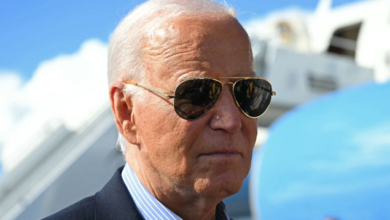Former White House Official Indicted for Allegedly Acting as Agent for South Korea

A former White House official has been indicted on charges of acting as an unregistered agent for South Korea. This significant development raises serious concerns about foreign influence and security within the highest levels of the U.S. government.
The indictment alleges that the official, who served during the previous administration, engaged in activities on behalf of the South Korean government without proper registration, violating the Foreign Agents Registration Act (FARA). This act requires individuals representing foreign powers in a political or quasi-political capacity to disclose their relationship with the foreign government and information about related activities and finances.
Prosecutors claim the former official covertly lobbied U.S. policymakers to take positions favorable to South Korea’s interests. These activities reportedly included influencing policy decisions, arranging meetings between U.S. officials and South Korean representatives, and providing strategic advice based on confidential information obtained through their White House role.
The indictment underscores the challenges of monitoring and preventing foreign influence within the U.S. government. Acting Assistant Attorney General John Demers emphasized the seriousness of the charges, noting that foreign agents must comply with FARA to ensure transparency and protect U.S. interests.
The case has also brought renewed attention to the broader issue of foreign lobbying in Washington. Over the past few years, several high-profile cases have highlighted the need for stricter enforcement of lobbying laws and greater scrutiny of individuals with access to sensitive government information.
The former White House official’s indictment follows an extensive investigation by federal authorities, which included the review of communications, financial transactions, and witness testimonies. The official, whose identity is yet to be publicly disclosed, faces significant legal penalties if convicted, including potential imprisonment and fines.
In response to the indictment, the South Korean embassy in Washington issued a statement denying any involvement in unlawful activities. They emphasized their commitment to maintaining strong and transparent relations with the United States.
This case adds to a growing list of legal challenges faced by former members of the previous administration. It also highlights the ongoing efforts by U.S. law enforcement to crack down on foreign interference and uphold the integrity of American political processes.
As the legal proceedings move forward, the indictment will likely spark further debate about the adequacy of current laws regulating foreign influence and the measures needed to safeguard national security. The outcome of this case could have far-reaching implications for how the U.S. addresses foreign lobbying and ensures accountability among its officials.
The former official is expected to appear in court soon, where more details about the charges and evidence against them will be revealed. The legal and political ramifications of this case will be closely watched, both domestically and internationally, as it unfolds.





